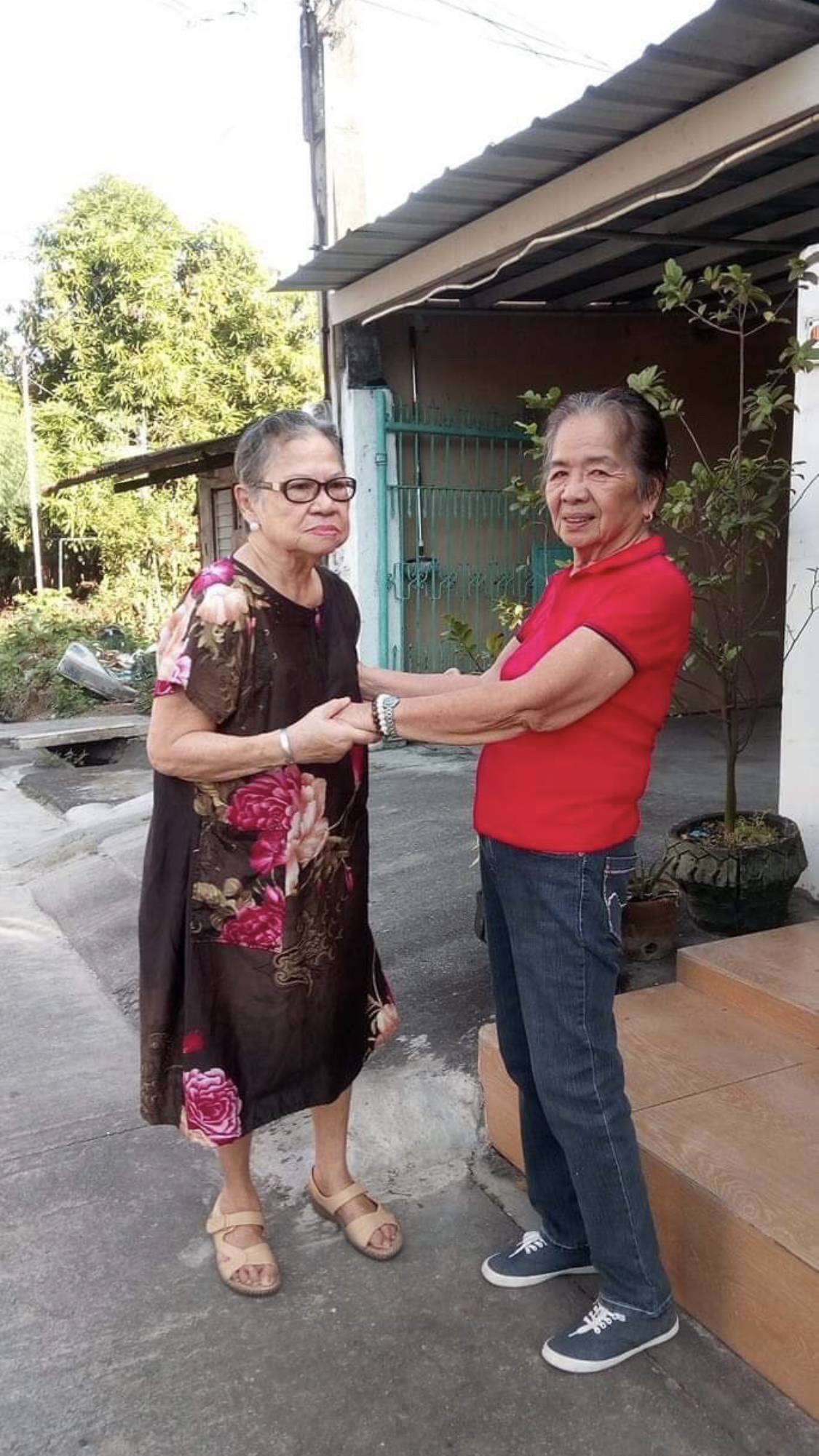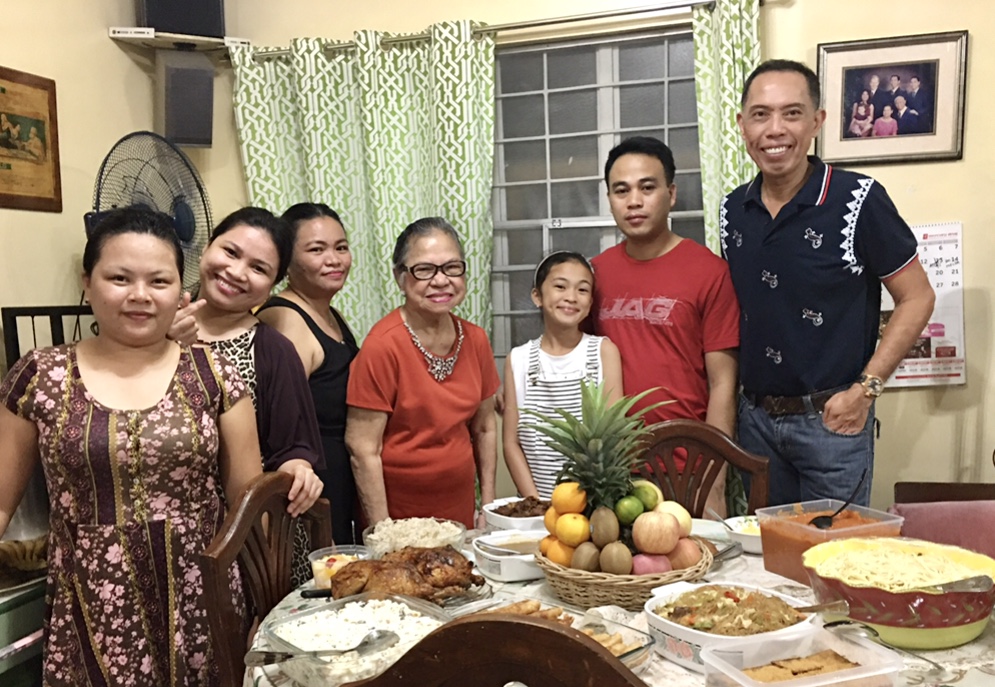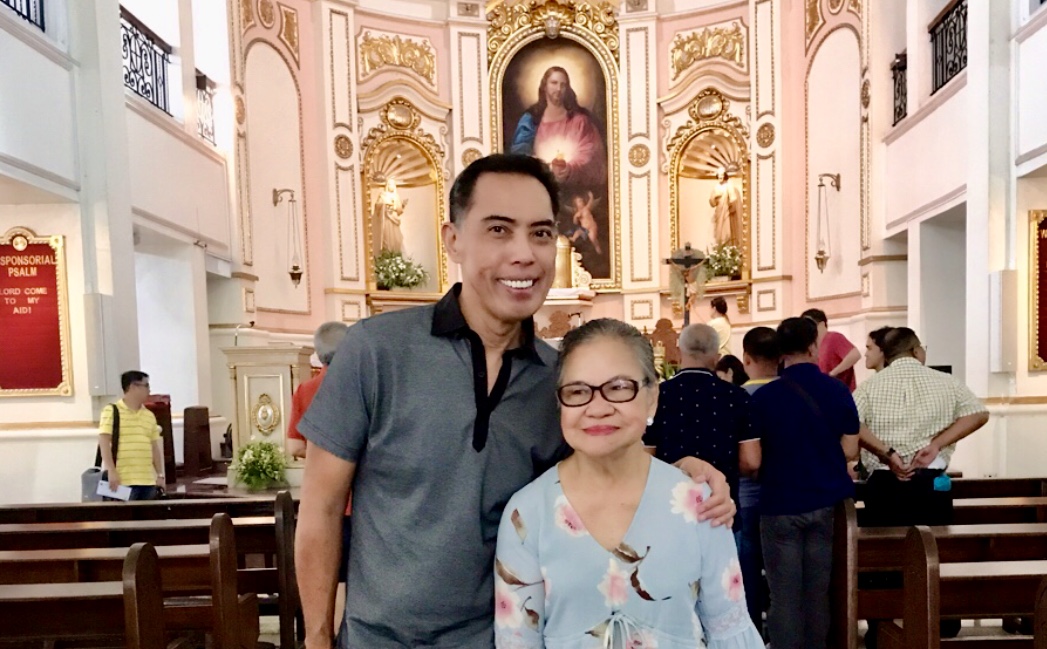
Overnight, and not with a small amount of sadness and regret on our part, COVID-19 has forced us to develop wooden hearts and nerves of steel, perhaps for our own good, as death soon morphed from mere statistics registered in China and elsewhere, to become personal and close to home, as people we know or know of began dying of the disease. All of a sudden, death by COVID-19 has gained a face.
By ALEX Y. VERGARA
The coronavirus is cruel! Cold, indifferent, ruthless and methodically cruel.
And my elderly, touchy-feely 83-year-old mother, like many of her contemporaries who rely more and more on tradition and visual cues for assurances, as their world becomes smaller, their memories turn hazier with each passing day, hasn’t been spared by it.
No, she’s very much alive amidst this raging pandemic, thank goodness. But the coronavirus has deprived her of giving and receiving the one thing that makes her happy. The one thing that makes her whole. The one thing that makes sense to her, that makes her feel alive.
And they’re random kisses and hugs she gives to and receives from us her son, her two caregivers and just about anyone in the neighborhood she hardly remembers anymore ever since a mild form of Alzheimer’s disease started to slowly gnaw at her brains and obscure her memories some eight years ago.
Young or old, rich or poor
The coronavirus is merciless, as if you didn’t know already, not just because it can weaken and slowly zap the life out of us—young or old, rich or poor, black or brown—until we become too wasted and spent not to be able to lift even our little finger, utter even the most unintelligible gibberish, or perform even the most innate and mundane tasks instinctively ingrained in every human being way before birth.
Knee-jerk reactions we need to survive, but seldom, if ever, stop and think about like breathing on our own, ingesting our own food and even opening and closing our eyes, have now been severely diminished to the point of being incapacitated, all because of the machinations perpetrated deep inside our bodies by a pesky and unseen enemy marked with those hideous, spine-tingling spikes.
More dreadful than the Big C?
Cancer, especially rare forms of the disease in its advance stages, is equally capable of sucking the life out of us. Of rendering us weak, slumped on our backs, bed-ridden, helpless, sometimes hopeless and eventually totally dependent on machines run with love or, at the very least, out of duty by other people to help us live or, viewed more realistically, prolong the inevitable.
The same is true for those who are knocking on death’s door due to massive strokes and heart attacks, hit and run events and car crashes. They didn’t even know what hit them at the precise moment, as they now lay nearly naked and disfigured while being wheeled on a gurney, bereft of consciousness, much less shame at the hapless state their fates have now reduced them to.
Like I said earlier, the coronavirus as well as its equally sinister spawn, COVID-19, is equally capable of beating and reducing us into an utterly hapless heap of pulp. Yet, if you ask me, COVID-19, if it were a person, is infinitely more heartless than any dreaded disease or freak accident known to man.
And as communicable diseases go, it knows where and when to hurt us the most, both its victims and their loved ones—depending on its severity, perhaps not so much physically, but more so emotionally and socially.
Wooden hearts, nerves of steel
In so little time, it has succeeded where no other infectious disease, not even perhaps leprosy or TB, has broken ground before—socially isolating us from one another, even from next-door neighbors, family members and dear friends, and fanning the flames of hate and paranoia like nothing we have ever seen or felt from a disease before.
He seems healthy, but is this fellow COVID-19-free or simply asymptomatic? Wait, was that a “COVID cough” I heard? How can that public official who tested positive be so brazen, as to run around town invariably infecting others? How come they have easy access to testing while we don’t? Hey, woman, stop breathing down my neck! Haven’t you heard of social distancing? Oh my God, I feel hot! I think I’m coming down with a fever! Could it be coronavirus?
Overnight, and not with a small amount of sadness and regret on our part, it has likewise forced us to develop wooden hearts and nerves of steel, perhaps for our own good, as death soon morphed from mere statistics registered in China and elsewhere, to become personal and close to home, as people we know or know of began dying of the disease. All of a sudden, death by COVID-19 has gained a face.
A newbie doctor and aspiring neurologist, whom I interviewed for a recent story and whose residency was cut short, temporarily, I hope, ever since his superiors decided to hastily deploy him in the frontline a few weeks ago, captured it best.
“One of the most difficult demands of being a doctor these days is seeing the patient die,” he said. “What makes it more difficult is that this time, there are no embraces between people, just dejected looks. No relatives physically present to comfort the patient. No healing words. And if they die, the hardest part is there are no wakes, no time to send off the deceased, no more goodbyes from those left behind.”
“I’m sorry, Ma. We just have to content ourselves by exchanging smiles and meaningful stares for the time being. Just be patient because I know you are. We still have a lifetime left of hugging and kissing to do as soon as this unfortunate pandemic is over.”
Although viewed from the prism of a healthcare professional, what this young man just said is bound to resonate with everyone, especially those with loved ones who are either still fighting for their lives or have already lost the battle with COVID-19.
It has become an all too familiar refrain since the disease first reared its ugly head late last year in Wuhan, China. You can’t visit the sick, care for them and, in the likely event that they don’t make it, publicly mourn for them and welcome relatives and friends to comfort you in your grief.
No public celebrations of lives lived
No kisses, no hugs, no assurances, no kind words whispered to a dying man’s ear, no personal sympathies extended to the bereaved, no public wakes. Only virtual celebrations and remembrances on social media and FaceTime of dead people and the wonderful lives they once lived. How cruel is that?
If you recover from it, then good for you. What’s a few more weeks of quarantine after all the disruptions you’ve had to endure before and during COVID-19’s onset.
But not so fast. A critical bout with this novel disease, as experts are now finding out, could lead you to further lifelong complications, including a damaged set of lungs and heart. It’s too early to tell, but COVID-19 survivors could also either be lionized for their strength and bravery, or envied and even stigmatized for having lived to tell the rest of the world about it, while others didn’t.
And if you don’t survive it, as a growing number of bereaved relatives and friends are finding out these days, where does that lead your earthly remains to? Straight to the crematorium!
And if there aren’t enough of them to go by, like what Spain and Italy have started to grapple with in recent weeks due to the record number of deaths in both countries, your body goes straight to a makeshift morgue, which, in Madrid’s case is a converted ice skating rink once dubbed as “Palacio de Hielo.” Talk about an icy reception.
Smiles and meaningful stares
Even those who are still negative in a positive way aren’t exempted from it.
Just this evening, fresh from a late afternoon jog, I went home to find my mother sitting in the living room passing the time. Her face lit up the minute she saw me and with very little warning suddenly stood up and tried to approach me in an obvious attempt to give me a kiss. She hasn’t given or received one since the Luzon-wide lockdown more than two weeks ago went into effect.
Just before she could reach me, I froze in my tracks, eyes wide open, and, without saying a word, gestured towards her by wagging my right index finger: “No!” The timely intervention of our kasambahay, who had to speak to my mother a tad louder into her ear, as she’s also hard of hearing, prevented her from doing so.
“Bawal mag-kiss ngayon, Mommy. ’Di ba sabi ko sa ‘yo, uso ang coronavius,” (Kissing is forbidden these days, Mommy. Didn’t I tell you that there’s a coronavirus epidemic?) said our maid, as she led my mother to her bedroom to watch TV soon before hitting the sack.
I’m sorry, Ma. We just have to content ourselves by exchanging smiles and meaningful stares for the time being. Just be patient because I know you are. We still have a lifetime left of hugging and kissing to do as soon as this damn pandemic is over.
And I have very little reason to doubt that the whole world, motivated primarily by love, would soon be able to kick this coronavirus in the ass before squishing it into oblivion.
Did you like what you’ve read? Please leave your comments and feedback in the comments section below.






